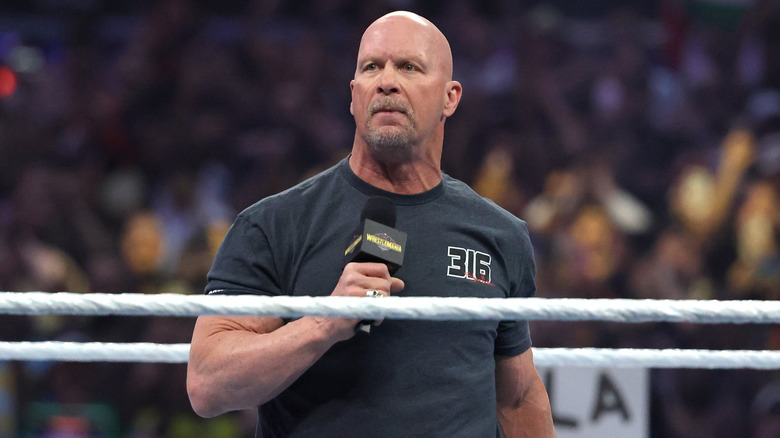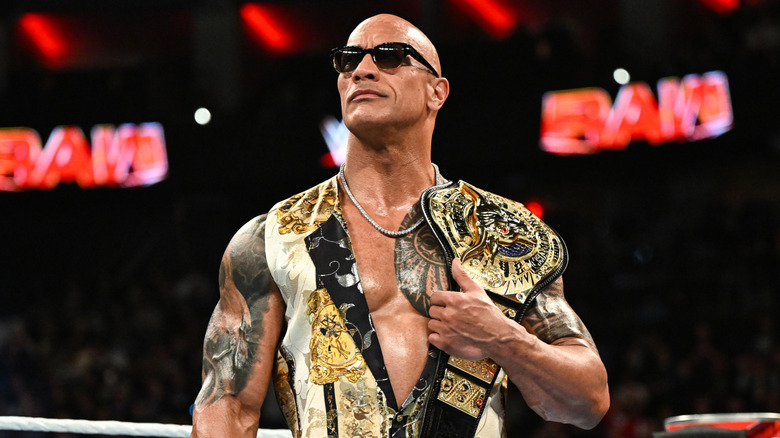What Does It Mean When A Wrestler Is Over?
Like many other industries, professional wrestling has its own jargon that's understood by those who follow it closely but may fly over the heads of the unfamiliar. The difference with wrestling is that the vocabulary is larger than most other industries, and many of the terms were originally meant to disguise their true meaning as a way to maintain kayfabe.
One phrase commonly used in wrestling is to describe a performer as "over." It doesn't mean that the wrestler is finished, as it might in casual conversation. Instead, being over as a wrestler means that you have a consistent connection with the audience.
This doesn't mean surface level popularity, though. To be truly over, a large segment of fans need to have an emotional connection to the wrestler, usually resulting in eruptions of cheers and applause whenever they first appear on a given night. Whether positive or negative, the only thing that matters is if the audience cares when a wrestler shows up.
Exact definitions of who is and isn't over will likely vary from person to person, as it's such a subjective call to make. However, there are some wrestlers who become undeniably over, and had or will continue to have a strong connection with wrestling fans through their entire lives.
Wrestlers Who Are Undeniably Over (And Some Who Aren't)
Among the most popular wrestlers to ever get over with the wrestling audience are "Stone Cold" Steve Austin and Dwayne "The Rock" Johnson, both of whom came up in the same era, when wrestling was arguably at the peak of its popularity with young people. Austin and Johnson have made returns to the industry in recent years, and their relationships with the audience remain strong, though The Rock may be starting to lose some of that goodwill.
The connection between wrestlers and fans is often lifelong, but that isn't always the case, and sometimes the attachment doesn't pass through generations. One example of this is Hulk Hogan, who spent years at the top of the industry, with successful runs as both a hero and a villain. However, following a string of scandals and controversies, many fans have turned on Hogan, resulting in boos even when he's portrayed as a babyface.
There are levels of popularity to take into consideration, as well. Certain wrestlers may be over with their audience in a specific promotion, but that awareness doesn't always translate to fans of other companies. Still, if they have the right charisma and level of talent, all it takes is some time and the right storyline to win over the crowd.

